Dear Friend of Patronato:
Last night, as I sat in my home office, I was sorting through some old newsletters from the early days of Patronato. In those yellowing pages, I read the stories of children in the campo who had suffered from cleft palettes, severe burns, and pulmonary fibrosis, all of whom were helped by Patronato Pro Niños. At that time, Patronato also distributed new shoes, sweaters, and school supplies since no one else was doing so. Medical professionals such as doctors and dentists charged reduced fees, hospitals, and pharmacies co-operated at all levels with this nascent organization.
The fundraising events were inventive: ranging from gourmet dinners to fiestas on Sunday mornings and the annual winter flea market, a community event attended by thousands of residents, tourists and even the poorest from the campo. In these articles, I could sense the pride in their achievements, devotion to these children and their determination to make those lives better.
I can say without exaggeration that for the past 50 years, Patronato has continued in that tradition of achievement, devotion, and determination. We have grown from those simple but vibrant beginnings into a professionally run organization, supported by a senior Board of Directors, and powered by dedicated volunteers. We reach out to the campo through 5 mobile medical/dental vans and have a standalone clinic that services children in San Miguel. For example, in 2019, we held over 13,000 consultations and expanded our services to consider the whole child's health through nutritional education and psychological counselling.
I know that it has been a difficult, even horrible year for many in the world. I see the pain in San Miguel, my adopted home, every day. Due to the pandemic, businesses have closed, some forever, restaurants and bars are shuttered, and the tourism industry, upon which most of San Miguel depends, well, it's almost a cliche to say it has been dealt a devastating blow.
Patronato was resilient, marshalling our resources to continue caring for over 325 children with special needs such as polio while partnering with other NGO's to deliver necessary supplies daily to the campo.
I also see encouraging signs. Signs to celebrate, optimistic young entrepreneurs are opening up for business, new restaurants eager for customers, and vaccinations on the horizon. This morning, I was delighted to see one bright, beautiful hot air balloon touring San Miguel from high in the sky!
I am very proud of my staff, who, just like the founders of Patronato, found solutions to the disadvantaged sick children's problems through their determination and initiative over the past year.
Like our counterparts wrote 50 years ago, we want to "Make the World a Better Place for All." Just like the donors who supported Patronato 50 years ago, you too can help, you can make a difference through your donation.
❤️ Patronato Pro Niños de San Miguel de Allende AC (mobilecause.com)
So please, see your way through the fog of these dark days, and move towards a better future for all, but especially for those children who desperately need it. I sincerely thank you for your past donations and encourage you to donate now.
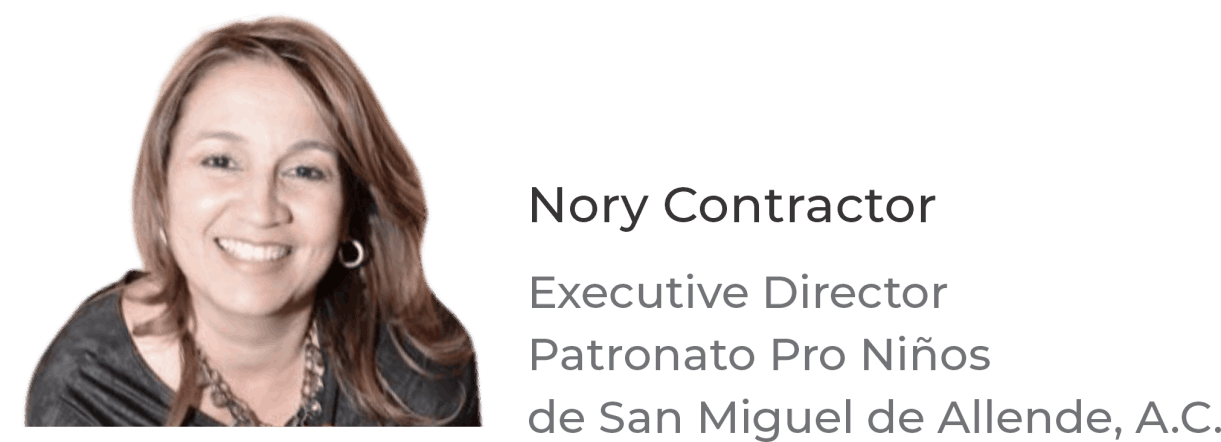
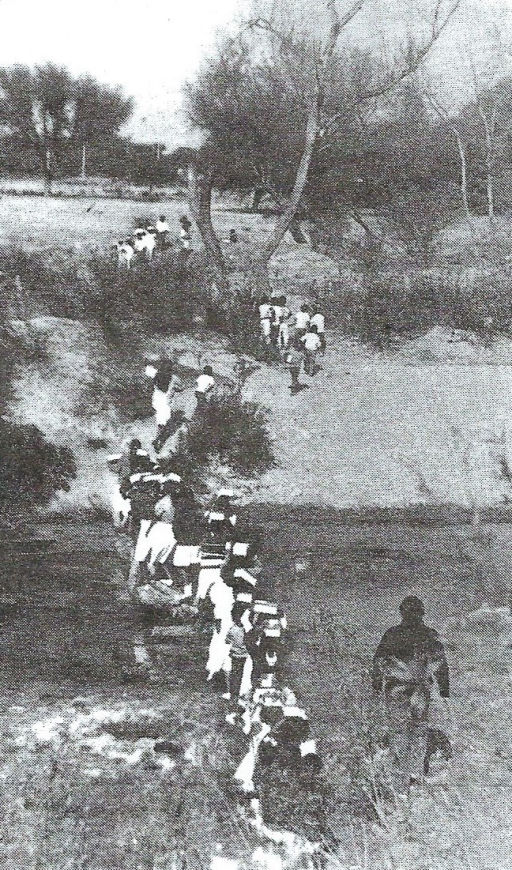
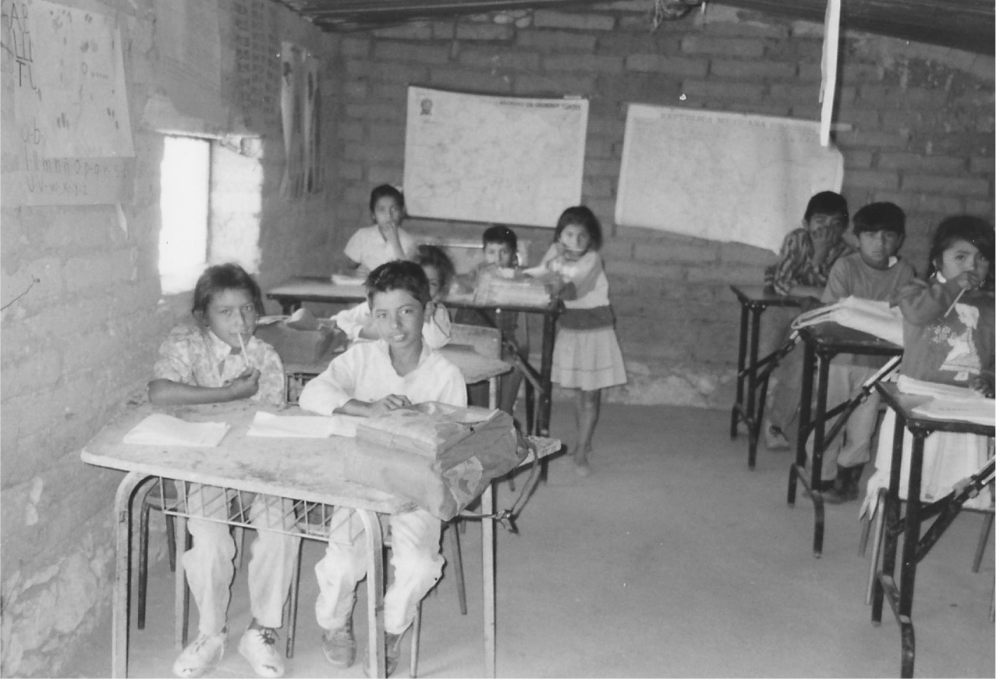
While preparing to write this story, I sifted through boxes of papers reviewing yellowing Board Meetings minutes, event programs and black & white photos of children in rickety one-room schoolhouses.
While listening to the personal anecdotes of those who wished to keep the past of this wonderful organization alive, I realized what a remarkable story it is. All the more so because it is a story of altruism, hard work and determination to see a critical task through. (And it still goes on, but that's a story for another issue).
As one early participant put it, it began with "a bunch of do-gooders" who wanted to see the neediest children in the campo surrounding San Miguel stay in school and get an education.
In the early 1970s, there was a publicly funded educational system in Mexico, but the schools in the countryside of the sparsely populated desert towns were often only dark one-room structures. To even call some of these places "towns" is a bit of a stretch: often, they were no more than a few tumbledown adobe houses, clustered near a larger ranch that employed some of the men & women. There was no electricity, no running water, no windows, sometimes no doors either. It was poverty at its most extreme.
This small group of American-born volunteers' goal was to see these impoverished families' children be healthy enough to attend school and have a chance for a better life.
They went back to basics in considering what was holding the kids back from going to school in the first place. Well, they thought, in that very practical American way, if they do not have shoes, how can they be expected to walk the 3 miles to the nearest schoolhouse? On those cold desert mornings, how do they keep warm on that long walk? If they have a medical problem, like a broken foot that was not appropriately set as they could not afford a doctor, how are they expected to struggle to get to school? Or a medical condition, like a cleft palate or epilepsy, which could mean that their family would not want them to be in a public place like a school?
All of these troubling questions were met with simple solutions and executed with single-minded determination. The kids needed shoes, so the group would raise money to buy them. They were cold; they would buy sweaters too, and since they cannot get into San Miguel, the volunteers would go to them.
Led by Stirling Dickinson, a delivery program to the children in the campo of "tenis" (we call them sneakers) and sweaters began and continued for 20 years. Stirling was a man who became famous in San Miguel as a teacher of art, a lover of orchids, and a generous and mostly anonymous benefactor to many charities: he arrived in 1937 and declared it to be his forever home almost instantly!
The roads were so rough that Stirling needed to replace his VW kombi every year so he could get out to the schools, making the bumpy ride driving through washed out, rutted tracks, following little hand-drawn maps and directions to small villages that read like a treasure map: "take a right at the fork near the old cactus, stay left until you see a creek. Avoid the big stump, and look for three old mesquite trees before turning right. Don't continue on from there if you or your truck can't handle the rough ride!" But the conditions did not deter the drivers: in fact, the motto was "the more remote the school, the more important the visit." Sometimes, the van had to be left on the road, and they relied on burros to finish the job.
They were not just delivering much needed shoes and clothes: their real motive was to scout for children who urgently needed medical treatment. As the 1989 Patronato Newsletter proclaimed, "for many of them, our visit can be the beginning of a new life. Epilepsy was diagnosed and treated, a club foot or crossed eyes repaired, a chronic ear pain banished by a needed operation, or orthopedic shoes provided."
Early on, it was apparent that the campo residents would not accept charity, so a nominal contribution was charged, about 10 pesos in today's currency. That small amount would clearly not pay for the stockpile of shoes and clothing. Monthly Board Meetings were consumed by generating ideas for raising funds. Money was raised through annual Newsletter campaigns, foundation appeals, and annual events like the "Gran Tianguis" or Winter Flea Market, which was a huge success: with over 3,000 people attending. Dedicated friends gave money from selling Spanish and bridge lessons, accounting services, cake sales and someone even sold their sofa to support the cause.
However, the pressing need for more money remained. The Patronato Pro Niños organization was not only identifying the most critical needs of these children: they were paying for major operations in Mexico City, transportation to & from hospitals and specialist offices, medicine for conditions like epilepsy, and mobility equipment like wheelchairs, walkers & crutches. They were able to do all of this because of the cooperation of local and regional doctors, dentists, surgeons and pharmacists, all of whom were donating or providing services and products and low or no cost.
It was an incredible display of generosity coupled with the organization's hard work and ability to find creative solutions that continued throughout the first 20 years. The founders were proud that the organization was 100% run by volunteers, and only 1% of their budget went to administrative expenses. That expense was to print and mail the annual Newsletter, which was a significant fundraising source.
After almost 20 years of continual effort, the 1987 Newsletter proudly reported that "Our greatest achievement is our reputation. Even in the remotest and poorest ranches, when health-related calamities befall, the people know that help is always immediately available, without red tape, without question, from the Patronato Pro Niños."
(This story is dedicated to all the passionate volunteers, on this side of the grass or otherwise.)
Sometimes teenagers get a bad rap. Some adults think of teenagers as moody, self-centered and annoying. As a former high school teacher, I know that, given appropriate challenges, young adults can be generous, selfless and inspirational. Three teens in Canada and the U.S. proved this by each raising $500 or the Patronato Pro Niños Project of Amistad Canada.
When the 2020 Toronto Waterfront Marathon was turned into a virtual marathon in October, due to COVID, Amistad Canada offered its partner organizations an opportunity to participate and raise funds. Fourteen people in Canada, Mexico and the U.S. ran or walked for Patronato and raised a total of $9,000.
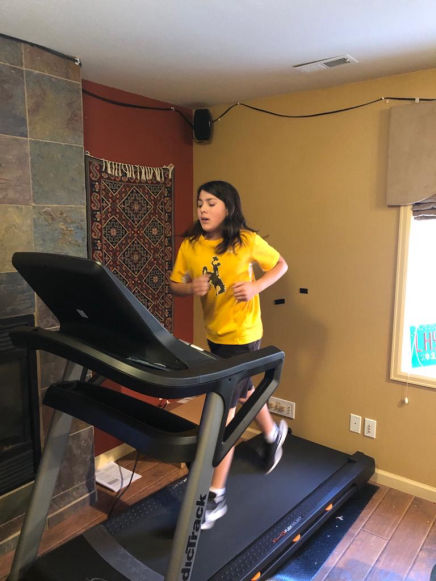
13-year-old David Novogrodsky has visited Mexico and has seen the contrast between the prosperity of many in San Miguel and the poverty of the campo. David, who lives in Laramie, Wyoming, USA, said he feels lucky to have access to medical and dental care when he needs it. "All kids should have that," said David. Asked by his grandparents to run, David didn't hesitate. He ran 5 km. three times and is continuing to run twice a week so he can be ready for 2021.
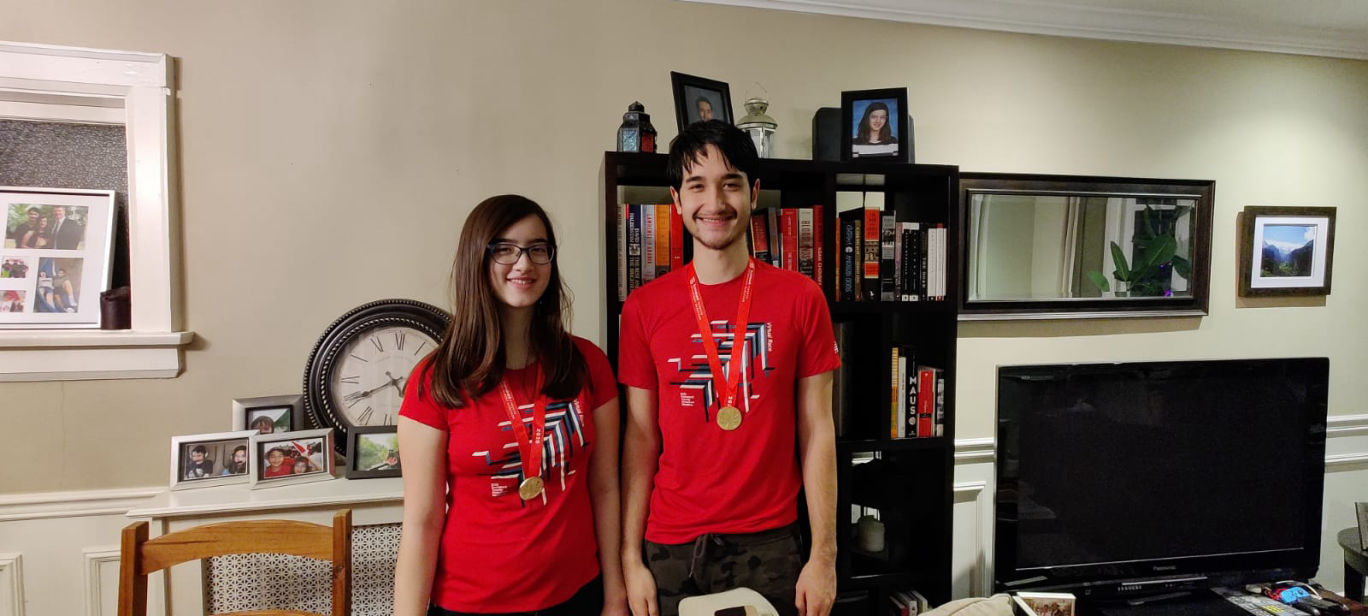
18-year-old Liam and 16-year-old Natasha Taylor are brother and sister who live in Toronto. They ran with their father after being introduced to the work of Patronato by their aunt.
Natasha writes, "the description of the work you are doing is what really made me want to participate. It's an interesting project. I like that I'm supporting a very specific goal- to provide dental care to children in the San Miguel area. This made the impact of my fundraising efforts more tangible which is really a great motivator. Dental care is a really important and often overlooked part of healthcare. As for the run itself, we (my brother, Dad and I) did it on a really beautiful day. Given COVID, it was nice to get out and have something to do. I would be happy to participate in another run."
San Miguel De Allende is home to many families who face day-to-day challenges in accessing adequate medical care for their children. We go to them.
There are over 500 outlying communities throughout the municipality of San Miguel de Allende. Thanks to our generous donors' support, we visit the most remote communities of our municipality.
The children we provide services to have no access to healthcare or dental care in their communities. Our medical/dental mobile units provide treatment and education to thousands of children who would not have access to medical or dental treatment otherwise.
Our medical/dental units have two distinct areas, one configured for dental consultations and the other for medical consultations. The fully equipped units have all the working instruments found in any medical or dental office. Our Dentists and Doctors travel every day to remote locations in the mobile units.
Come along to discover a "Day in the Life" of a medical-dental unit.
For 50 years, we have been dramatically changing and improving lives by providing the best care available. This year, more than ever, with all the challenges and adversities due to COVID-19, children need access to quality medical services more than ever.
Be part of this great family and help us provide healthcare to the thousands of vulnerable children who need it.
👉 Patronato Pro Niños de San Miguel de Allende AC (mobilecause.com)
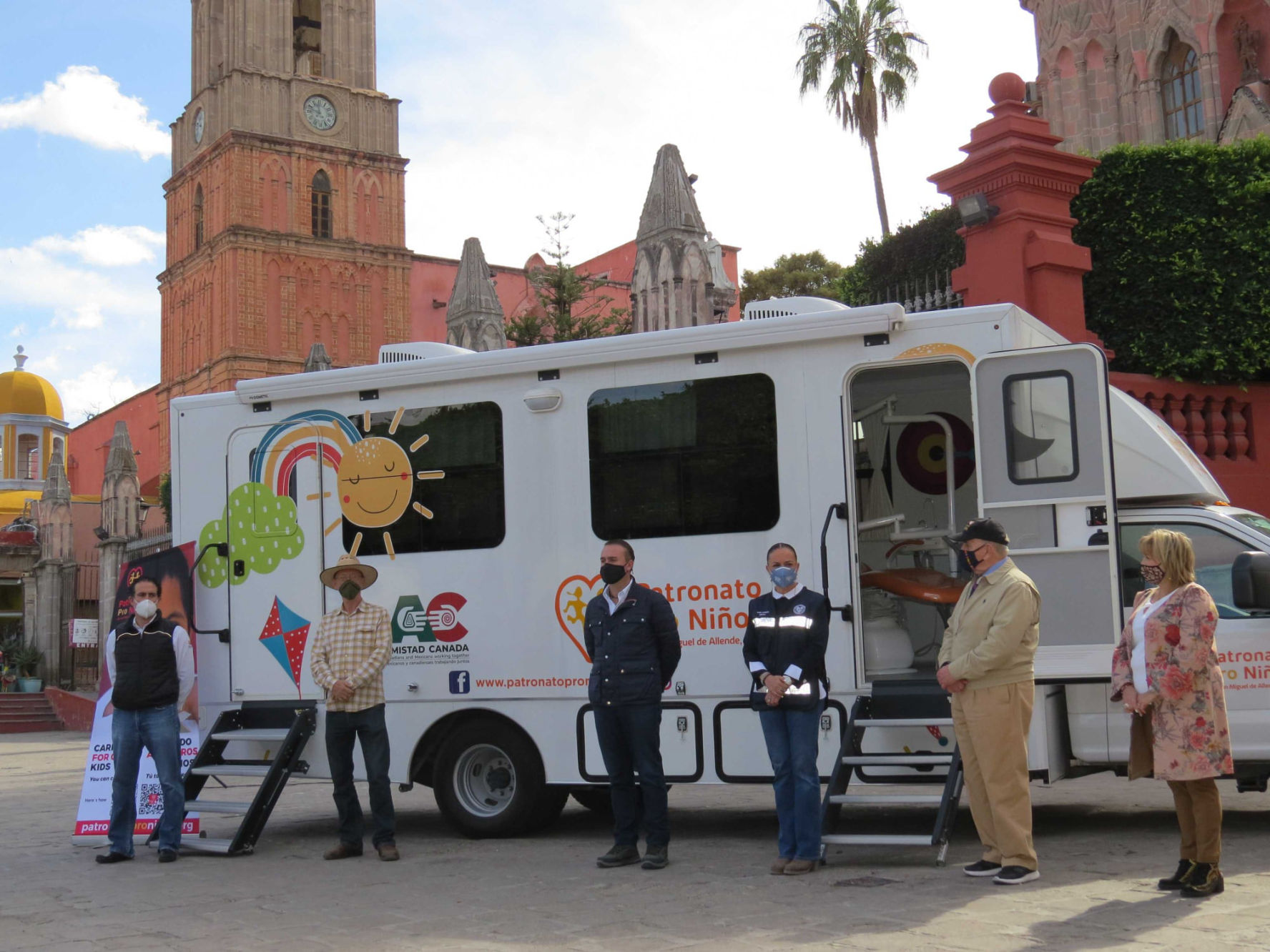
On January 12, 2021, Patronato Pro Niños 5th mobile medical-dental unit was officially launched in San Miguel de Allende.
The municipal president, Luis Alberto Villarreal acknowledged the incredible support of the Canadian Community "On behalf of the people of San Miguel, we would like to thank them for three years of tireless work to bring this Mobile Medical and Dental Unit here. Thank you, Canada, thank you San Miguel Canadians."
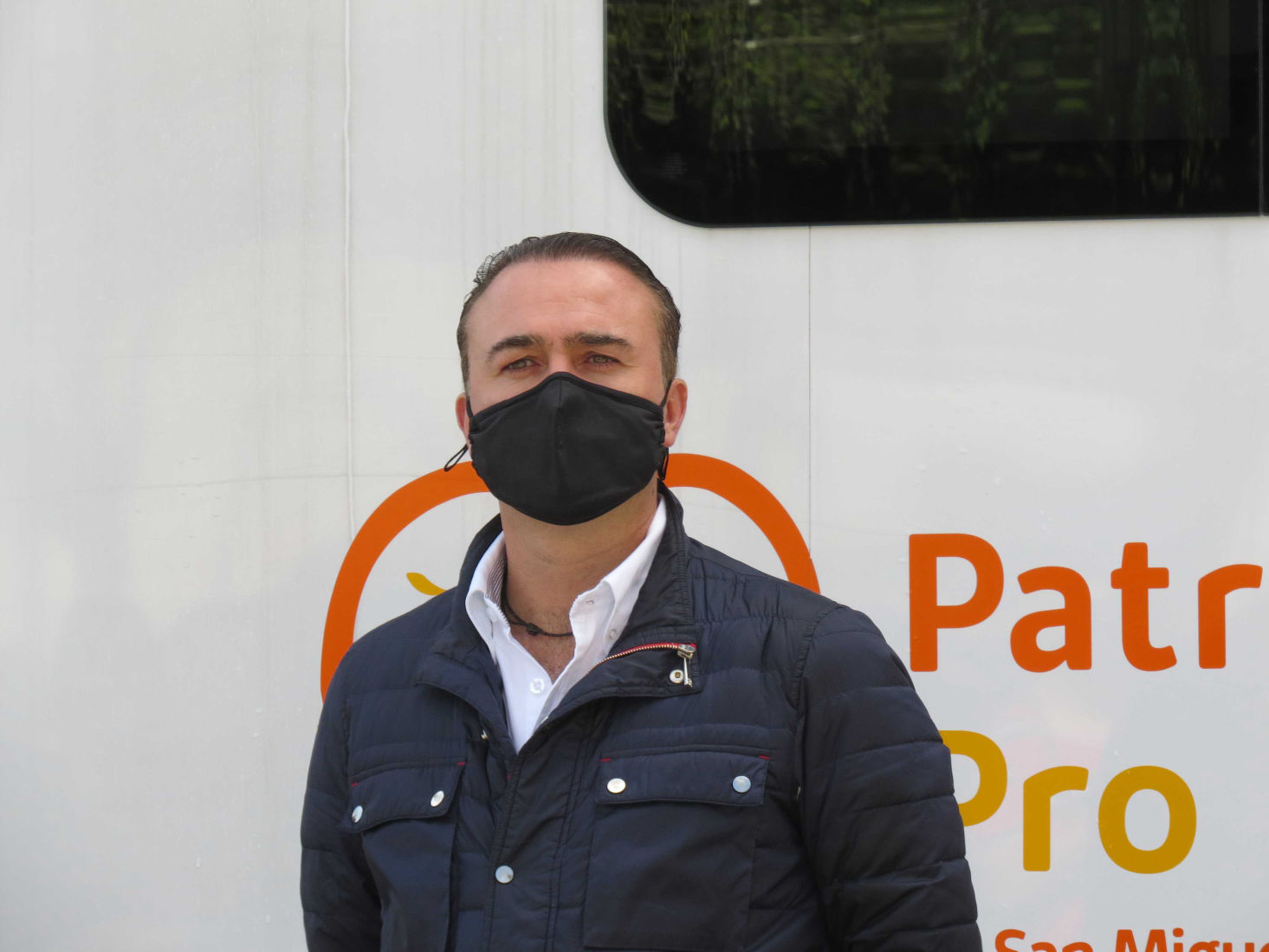
The acquisition of this Mobile Unit was achieved with an investment of 1,900,000 pesos, collected over two years of work between Patronato Pro Niños and Amistad Canada.
Nory Contractor, the Executive Director, noted that with this new unit, we will provide even more health services to the disadvantaged of San Miguel, "bringing them the best possible care from doctors and dentists and of course a great team of drivers who also serve the unit as dental assistants."
Patronato Pro Niños is also pleased to announce that a new Memorandum of Understanding was recently signed with Amistad Canada, extending the project's term for two years until December 31, 2022. Proceeds of fundraising efforts in Canada will pay the salaries and honoraria for the driver, the doctor and the dentist who will staff the mobile new medical-dental unit provided by Amistad Canada.
Most years, the Toronto Committee in support of Patronato Pro Niños holds some kind of live event as a fundraiser. This year due to the pandemic it was an online series collectively called Fall Fanfare: A concert with Bram Morrison and Amanda Martinez; a presentation by Professor James Creecham on the impact of the drug cartels on life in Mexico; and a cooking demonstration hosted by Mexican-Canadian chef Iliana Ramirez.
The three evenings exceeded the $15,000 goal. In addition, the Scotiabank Virtual Race Team also raised more than $9,000 to support Patronato Pro Niños services.
👉 Donate Now (CAN) make sure you choose PATRONATO PRO NIÑOS Medical & Dental Care
SHARE THIS NEWSLETTER!